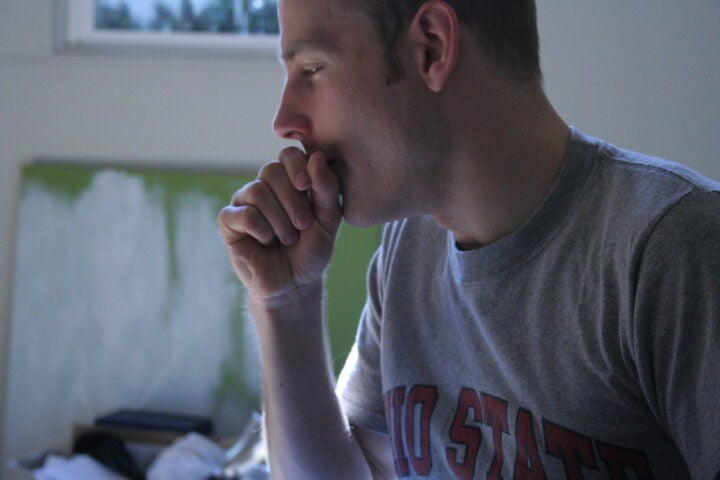A comprehensive study from Florida Atlantic University has revealed strong connections between caregiver mental health and childhood behavioural disorders, particularly anxiety and ADHD. The research, published in Pediatric Reports, analyzed data from nearly 52,000 children aged 6 to 11 between 2019 and 2022.
Children with caregivers reporting “poor” mental health were 4.6 times more likely to have severe ADHD compared to those with caregivers in “excellent” mental health. Similarly, children’s risk of severe anxiety was nearly six times higher when their caregiver had poor mental health.
“Our study highlights the lasting impact of caregiver mental health on childhood disorders, particularly anxiety, behavioural problems and ADD/ADHD,” said Lea Sacca, Ph.D., assistant professor at FAU’s Schmidt College of Medicine and senior author of the study.
The COVID-19 pandemic, which increased the time children spent with caregivers, demonstrated a clear connection between childhood anxiety and caregiver mental well-being. According to researchers, these effects appear to be long-term rather than temporary.
The study documented several concerning trends in childhood mental health during the study period:
Anxiety in children increased from 9.5% in 2020 to more than 11% in 2022. The prevalence of autism spectrum disorder rose from 3% in 2019-2020 to 4.25% in 2022. ADHD prevalence steadily increased, reaching 12.8% by 2022. Behavioural and conduct problems grew from 9.2% in 2019 to 10.3% in 2022.
Not all childhood conditions showed strong connections to caregiver mental health. The researchers found no significant associations between caregiver mental health and childhood depression or autism spectrum disorder.
Similar Post
The study recommends that paediatricians advocate for coordinated mental health services that benefit the entire family. “Our findings support the need for a holistic approach to addressing childhood mental, behavioural and developmental disorders, one that includes caregiver well-being as a key factor,” Sacca concluded.
According to the researchers, evidence-based programs should focus on strengthening family dynamics, promoting healthy caregiver-child relationships, and supporting caregivers’ emotional well-being through trauma-informed, multidisciplinary care.
Given the lingering effects of the pandemic on children’s mental health, policymakers must consider external factors when creating public health strategies to effectively address childhood mental and behavioural problems.
FAQ:
How does a parent’s mental health affect their child’s risk of developing ADHD?
According to the study, children whose caregivers reported “poor” mental health had 4.6 times higher odds of having severe ADHD compared to children whose caregivers reported “excellent” mental health. Even caregivers with just “good” mental health had children with 2.3 times higher odds of severe ADHD, showing that the caregiver’s mental wellbeing significantly impacts their child’s attention and behavioral regulation.
Did the COVID-19 pandemic worsen children’s mental health problems?
Yes, the study shows several concerning trends during the pandemic period (2019-2022). Anxiety in children increased from 9.5% in 2020 to more than 11% in 2022. Behavioral problems rose from 9.2% to 10.3%, and autism spectrum disorder prevalence increased from 3% to 4.25%. The researchers noted that increased time children spent with caregivers during the pandemic revealed a strong connection between severe childhood anxiety and lower caregiver mental health.
Are all childhood mental health conditions connected to caregiver mental health?
No, the study found significant connections between caregiver mental health and children’s anxiety, ADHD, and behavioral problems. However, researchers did not find significant associations between caregiver mental health and childhood depression or autism spectrum disorder. This suggests different factors may influence the development of these conditions.
What solutions do researchers recommend to address this issue?
Researchers recommend a holistic approach that includes caregiver wellbeing as a key factor when treating childhood mental health issues. They suggest evidence-based programs focusing on strengthening family dynamics, promoting healthy caregiver-child relationships, and supporting caregivers’ emotional wellbeing through trauma-informed, multidisciplinary care. Pediatricians should advocate for coordinated mental health services that benefit the entire family, not just the child.
How many children were included in this research study?
The study from Florida Atlantic University gathered data on nearly 52,000 children aged 6 to 11 years old between 2019 and 2022. The researchers used data from the National Survey of Children’s Health to track behavioral, mental, and developmental problems among these children and assess connections to caregiver mental health.
Does improving parental mental health help reduce a child’s symptoms of ADHD or anxiety?
While this specific study didn’t measure improvements in children’s conditions after parental mental health interventions, the strong statistical association suggests that addressing caregiver mental health could benefit children’s mental health outcomes. The researchers recommend evidence-based programs that support caregivers’ emotional wellbeing as part of a comprehensive approach to treating childhood mental, behavioral, and developmental disorders.



















